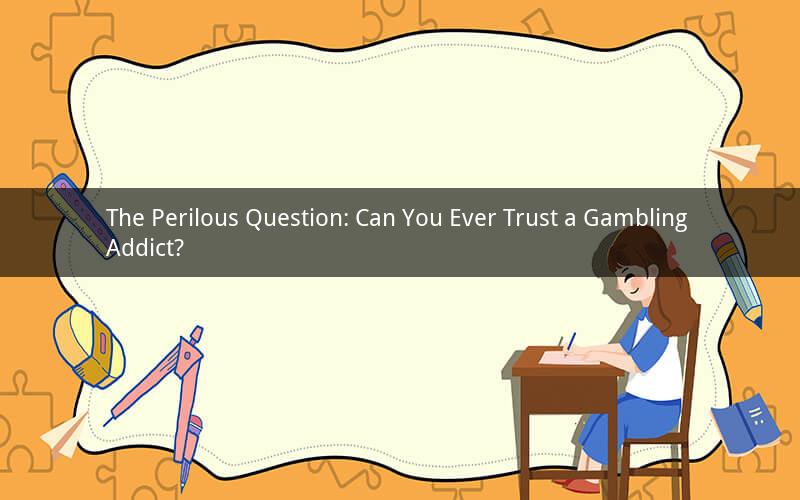
In the world of gambling, trust becomes a delicate issue. The allure of luck, the thrill of the unknown, and the potential for massive winnings often cloud judgment and rational thinking. When a person succumbs to the irresistible pull of gambling, it raises a pressing question: Can you ever trust a gambling addict? This article delves into the complexities of gambling addiction, the impact it has on relationships, and the possibility of rebuilding trust.
1. What is gambling addiction?
Gambling addiction, also known as problem gambling or compulsive gambling, is an impulse control disorder. It is characterized by an irresistible urge to gamble, despite negative consequences. Those struggling with gambling addiction often experience intense emotions, such as excitement, anxiety, and relief, when engaging in gambling activities. As the addiction progresses, the individual may continue to gamble despite mounting debts, financial ruin, and damaged relationships.
1. How does gambling addiction affect relationships?
Gambling addiction can have a devastating impact on relationships. Trust is often shattered as the addicted individual lies, steals, and behaves deceitfully to fund their gambling habit. Family members and friends may feel betrayed, abandoned, and emotionally drained. The addicted individual may become distant and preoccupied with gambling, leading to neglect and emotional withdrawal from loved ones.
1. Can a gambling addict rebuild trust?
Rebuilding trust is possible for a gambling addict, but it is a challenging and lengthy process. It requires a strong commitment to change, honesty, and open communication. The individual must be willing to confront their addiction, seek professional help, and take responsibility for their actions. As they demonstrate progress in their recovery, trust can gradually be rebuilt.
1. How can you spot a gambling addict?
Spotting a gambling addict can be difficult, as they often hide their addiction from others. However, there are some warning signs to look out for:
- Preoccupation with gambling thoughts
- Increasing time spent gambling
- Borrowing money or selling personal belongings to fund gambling
- Lying about gambling activities
- Neglecting responsibilities at work, school, or home
- Denial of the problem despite negative consequences
1. Is it possible to prevent gambling addiction?
Preventing gambling addiction starts with understanding the risks and being aware of the signs. Here are some tips for individuals and communities:
- Educate yourself about gambling and its potential dangers
- Set limits on gambling activities
- Seek help if you suspect a gambling addiction
- Support others who are struggling with gambling addiction
- Promote a healthy and balanced lifestyle
In conclusion, can you ever trust a gambling addict? The answer lies in the individual's willingness to change, seek help, and rebuild trust. While the journey may be arduous, it is not impossible to overcome the challenges posed by gambling addiction and restore faith in oneself and others.
1. How can families support a loved one struggling with gambling addiction?
Family members can support a loved one struggling with gambling addiction by offering empathy, understanding, and encouragement. They can encourage their loved one to seek professional help, attend support groups, and develop healthy coping mechanisms. It is crucial to maintain boundaries and not enable the addiction by providing financial assistance or covering up for the addicted individual.
1. Are there specific support groups for gambling addicts?
Yes, there are several support groups available for gambling addicts, including Gamblers Anonymous (GA) and SMART Recovery. These groups provide a safe and supportive environment where individuals can share their experiences, learn from others, and develop strategies for overcoming addiction.
1. What role do therapists play in treating gambling addiction?
Therapists play a vital role in treating gambling addiction by providing personalized treatment plans, counseling, and support. They may use various therapeutic approaches, such as cognitive-behavioral therapy (CBT), to help individuals identify and change harmful thoughts and behaviors associated with gambling addiction. Additionally, therapists can offer coping strategies to manage stress, anxiety, and other emotions that contribute to the addiction.
1. Can gambling addiction be treated effectively?
Yes, gambling addiction can be treated effectively. With the right combination of therapy, support, and self-awareness, individuals can overcome their addiction and lead a healthier, more fulfilling life. Treatment outcomes may vary depending on the severity of the addiction, the individual's commitment to recovery, and the availability of resources.